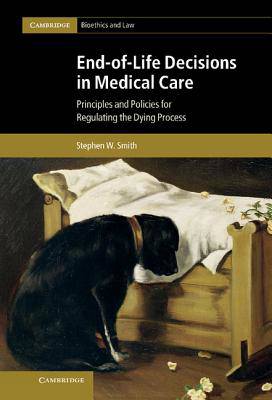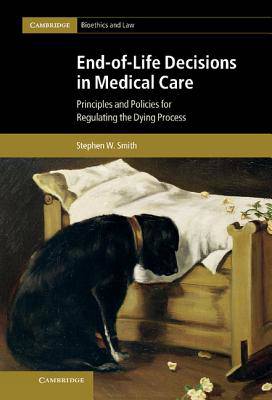
- Afhalen na 1 uur in een winkel met voorraad
- Gratis thuislevering in België vanaf € 30
- Ruim aanbod met 7 miljoen producten
- Afhalen na 1 uur in een winkel met voorraad
- Gratis thuislevering in België vanaf € 30
- Ruim aanbod met 7 miljoen producten
Zoeken
End-Of-Life Decisions in Medical Care
Principles and Policies for Regulating the Dying Process
Stephen W Smith
€ 111,95
+ 223 punten
Omschrijving
Those involved in end-of-life decision making must take into account both legal and ethical issues. This book starts with a critical reflection of ethical principles including ideas such as moral status, the value of life, acts and omissions, harm, autonomy, dignity and paternalism. It then explores the practical difficulties of regulating end-of-life decisions, focusing on patients, healthcare professionals, the wider community and issues surrounding 'slippery slope' arguments. By evaluating the available empirical evidence, the author identifies preferred ways to regulate decisions and minimise abuses at the end of life, and outlines an ethical theory which can provide practical guidance for those engaged in end-of-life decisions.
Specificaties
Betrokkenen
- Auteur(s):
- Uitgeverij:
Inhoud
- Aantal bladzijden:
- 368
- Taal:
- Engels
- Reeks:
- Reeksnummer:
- nr. 18
Eigenschappen
- Productcode (EAN):
- 9781107005389
- Verschijningsdatum:
- 26/03/2012
- Uitvoering:
- Hardcover
- Formaat:
- Genaaid
- Afmetingen:
- 152 mm x 229 mm
- Gewicht:
- 698 g

Alleen bij Standaard Boekhandel
+ 223 punten op je klantenkaart van Standaard Boekhandel
Beoordelingen
We publiceren alleen reviews die voldoen aan de voorwaarden voor reviews. Bekijk onze voorwaarden voor reviews.











